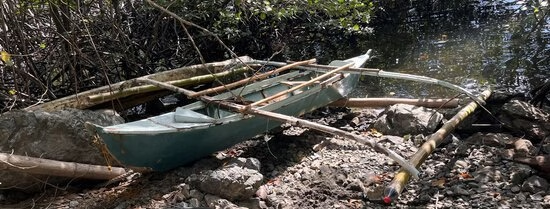How do ordinary people caught up in situations where water-bodies and border imaginaries are fiercely contested, make sense of their environment and exert agency to navigate and reimagine alternatives at the margins of securitized borders and accelerated environmental change?
How do the relationships between securitization or territoriality around borders, water scarcity, imaginaries of better lives, and the lived experiences of people unfold every day? What varied adaptation strategies do they pursue? Why?
How does people’s use of language in representing salient social and political events surrounding water, conflicts and identity define and redefine their personal and political imaginaries?
These are just some of the questions researchers working on the Water, Securitisation Anxieties and Border Imaginaries (WASABI) will be investigating.

About the project
WASABI aims to provide a holistic understanding of the imaginaries and experiences associated with securitised water bodies and borders, ranging from the association of water as life-giving and nurturing to life-taking and constraining. This will allow us to bring together the recent concerns and discussions around, on the one hand, climate change, conservation initiatives and resource conflicts which can trigger new (im)mobilities and, on the other hand, long-standing territorial conflicts.
By sifting through people’s lived experiences with water bodies and borders (i.e. an aquatic perspective) in regions with histories of conflict and confluence of mobilities, we challenge the dominant scholarship on water bodies and borders that relied on a state-centric, geopolitical perspective that disregards people-centred perspectives and propose instead to focus on belonging, identities and livelihoods.
In this way we problematise the interface between state-led securitisation/militarisation and the lived experiences and imaginaries of people around the contested water bodies in reference to ongoing academic debates.
To our knowledge this will be the first cross-regional comparative study that simultaneously looks at three interrelated dimensions of
- self-understanding/subjectivity;
- everyday lives/livelihoods;
- changing territories/places/imaginaries, which have been neglected in previous studies.
We look at these three dimensions by advancing and integrating the theoretical debates on securitization, water borders and imaginaries and (im)mobilities.
During six years of study, relying on existing networks and amplifying these, we will work in five countries (Azerbaijan, the Philippines, Sri Lanka, Turkey, and Panama). We employ a multi-regional case study research design with qualitative methods to investigate the relationship between securitisation, territoriality around borders and imaginaries linked to the creation and activation of borders and the lived experiences of communities, both near the borders and afar. We will utilise a range of qualitative research techniques, namely discourse analysis, sensory political analysis, visual analysis through archival research, photo elicitation, social mapping, interviewing (experts and otherwise) as well as ethnographic and participant observation.

Project aims
This project aims to bring politics and people’s agency back into territorial securitization debates. We challenge a state-centric approach to securitization that fails to include people’s lived experiences on the ground, or that is restricted to specific powerful or notable groups but does not include ordinary communities inhabiting water borders. To do so, we bring in people’s variegated lived experiences related to water bodies and borders in regions with histories of conflict and confluence of mobilities, focusing on the dimensions of subjectivity, everyday materiality, and imaginaries, to write people’s agency back into studies of territorial securitization.
Why is this project relevant?
The nature of intra and inter-state conflicts in the 21st century led to borders becoming increasingly militarized and securitized, through conflicts over territories, resources, people’s mobilities and identities.
We want to find out how ordinary people caught up in conflicts where water-bodies and border imaginaries are fiercely contested, make sense of their environment and exert agency to navigate and reimagine alternatives at the margins of securitized and militarized borders.
But if water bodies are divisive and contested they are also sites of exchange, cooperation and are life-giving and nurturing. Borders and imaginaries of our project include bodies of territorial water, oceanic waters, cross-border rivers and water-demarcated borders with contested meanings to competing or warring parties and their users.
Water bodies have so far been accounted for through the lens afforded by top-down geopolitical analysis, often from an ahistorical approach or not paying sufficient attention to communities who live at the borders. On the other hand borders and water bodies have also been explored by social scientists shedding light on people’s identities and everyday struggles. This project proposes to revisit the geopolitical debates by privileging the bottom-up perspectives connecting local sites of struggle over water borders with sites of power struggles in capital cities, major economic centres and institutions of global and regional governance.
Long term impacts
- A holistic understanding of the lived imaginaries and experiences associated with securitized water bodies and borders is shared and discussed with other academics, advancing the joint theorization of securitization, water, and migration/mobility (Scientific Impact)
- An aquatic, multi-regional and multi-dimensional perspective brings together previously unconnected but highly topical areas of research, thereby advancing methodologically the scholarly debates around securitization, water, and migration/mobility (Scientific Impact)
- Visual and sensory approaches in the project’s methodology contribute to build a new methodological framework that is explicitly incorporating multisensory approaches to the project’s three main combined thematic areas (Scientific Impact)
- A regular discussion of results through workshops with local actors, policy makers and other stakeholders contributes to the dissemination of knowledge beyond academia and enables the uptake of our recommendations to improve people’s lives around the water borders we study (Societal Impact)
- A showcasing of the research results through alternative means such as (travelling) exhibitions, blogs, and virtual repositories contributes to the sharing of experiences, perspectives and strategies of water border people worldwide, potentially acting as a catalyst for change (Societal Impact)

Contact the research team

Dr Nanneke Winters
- Email address
- winters@iss.nl
For more information about this project, contact Dr Nanneke Winters
Funding
The project is funded by the ISS starter grant.
Project Period
January 2023 – December 2028
